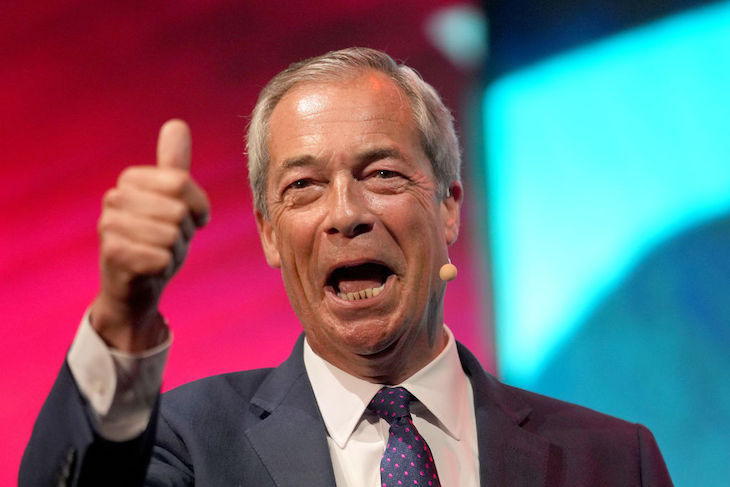A year ago, the Reform party had an average poll rating of six per cent and was as good as invisible to that large majority of the electorate which does not obsess about politics. Its then leader Richard Tice was showing impressive reserves of stoicism in keeping the show on the road, but there was no sign of lift off. In two parliamentary by-elections, held in Tamworth and Mid-Bedfordshire on October 19, 2023, Reform scored vote shares of 5.4 per cent and 3.7 per cent respectively.
The traditional Tory tactic of trying to depict Farage as not respectable has run its course
When Rishi Sunak marks his second anniversary as Tory leader this coming Thursday – and, by the way, no celebration seems to be planned, perhaps he will reflect on his role in transforming its fortunes. Sacking Suella Braverman and recalling David Cameron to cabinet in November, withdrawing the Tory whip from Lee Anderson in February, failing to get the Rwanda plan off the ground, calling a disastrous summer election, not seeing out D Day commemorations, allowing legal immigration to hit gargantuan levels while under the mistaken impression that the electorate was relaxed about this: these are but some of the gifts Sunak showered upon the insurgent party to his right.
Now Reform has an average poll rating touching 20 per cent and a cluster of MPs to its name, including its world-famous leader Nigel Farage. Such has been the progress of the light blue peril that the size of its membership may well overtake that of the Tories at some point next year.
No wonder that during Thursday’s Conservative leader debate on GB News, both candidates frequently referred to the threat posed by Farage and Reform. Robert Jenrick optimistically spoke of seeking to ‘retire’ Farage, in effect by stealing his policies.
More notably still, the frontrunner Kemi Badenoch openly raised the prospect that Reform could replace the Tories and attached the appellation ‘centre right’ to it. She even praised Farage as an influential political figure who knew how to communicate and campaign.
In other words, the traditional Tory tactic of trying to depict him and his political vehicles as beyond the pale and not respectable has run its course: too many voters have put their 'X' in his box and the Conservatives cannot afford to insult them.
Conventional political wisdom tells us that the Tories and Reform are now in a fight to the death for dominance on the right of centre. I think it is probably wrong. Given that 89 of Reform’s 98 runner-up slots at the general election occurred in seats won by Labour – mainly in the Red Wall and South Wales valleys – there seems to be no logical reason why the next Tory leader should prioritise its extermination, even were such a goal attainable.
The Tories, meanwhile, lost five seats to Reform, but around 170 to Labour and 60 to the Liberal Democrats. The two right-of-centre parties will certainly be fighting each other hard in next spring’s round of local elections. But beyond that, there is a strong case for them mirroring the informal non-aggression pact that served Labour and the Lib Dems so well on 4 July.
Farage has money and members pouring in
Given Labour’s terrible start in office and its inflaming of outrage among voters on the right, it would make sense for both the Conservatives and Reform to train their guns on the government and all but ignore each other.
Perhaps the new Tory leader will be such a hit across the country that the air will start seeping out of Reform’s balloon anyway. But that does not feel like the most probable outcome. Farage has money and members pouring in, sky high brand recognition, and a climate of opinion on his side that is deeply disenchanted with both major establishment parties.
While Reform possesses basic ideological coherence and unity – even if its policies are currently an unconvincing hotch-potch – Tory MPs in the third leadership registered a combined vote of 59 for James Cleverly and Tom Tugendhat on the left, and 61 for Badenoch and Jenrick on the right. Split down the middle, then.
Of course, one MP did not vote: Rishi Sunak. Perhaps he figured that he had done enough damage already.







Comments